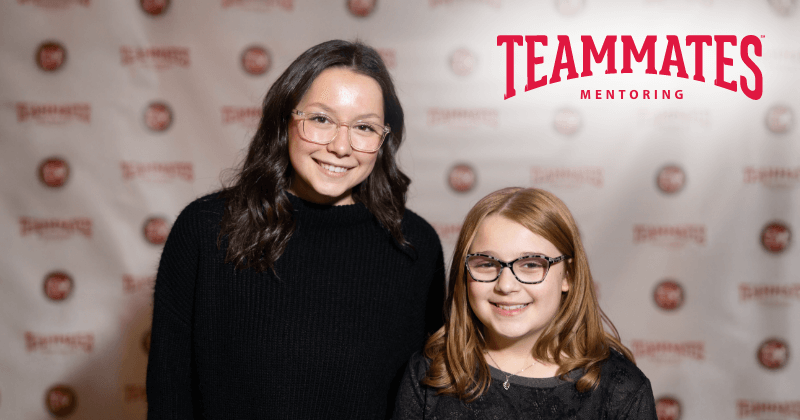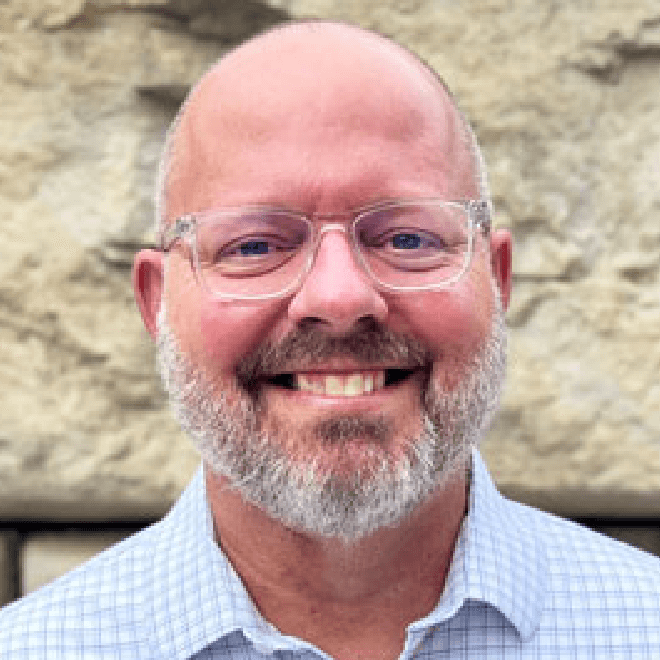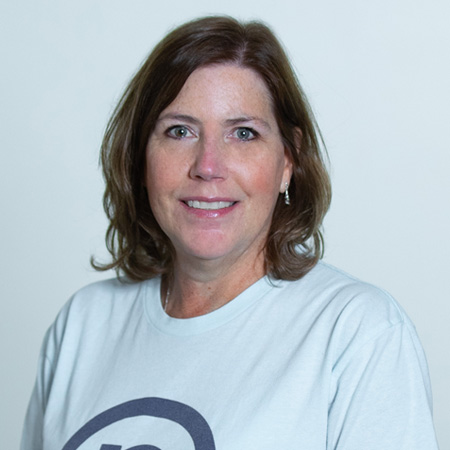How One Hour a Week Makes a Difference
It’s Wednesday morning at a Lincoln, Nebraska middle school. Raya, a seventh-grade TeamMates mentee, puts the final brushstrokes on her clay project. Across the table, Alena Hernandez, her mentor and a marketing coordinator at Nelnet, smiles as she watches her work.
“I’ve been more positive about things since having Alena for a TeamMate,” Raya says. And one day, she wants to pay it forward—by becoming a teacher and a mentor herself.
This is the ripple effect of mentorship in action.
Then: The Origin Stories of Mentorship
In 2019, Jennifer Draper, call center supervisor at Nelnet, sat in a coffee shop with her former mentor as she struggled with self-doubt and the decision to go back to school for her master’s degree. Kathy, who began mentoring Jennifer when she was a seventh-grade student, gave her the same encouragement she always had: “Just do it. I know you can do it.”
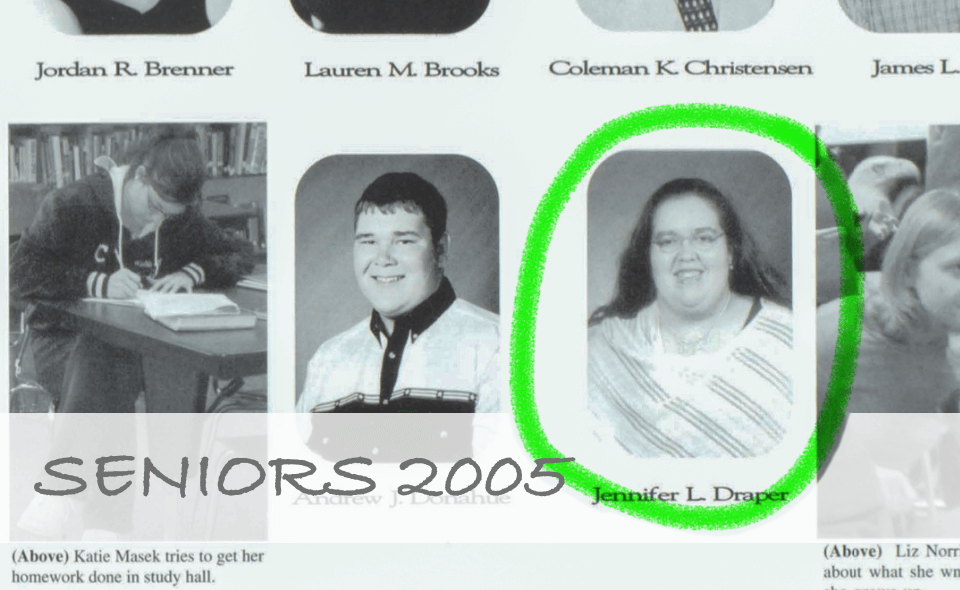
Jennifer had been bullied in middle school, affecting her self-confidence and grades. In 1998, everything changed for Jennifer when she was paired with Kathy through TeamMates.
Without Jennifer knowing, Kathy nominated her for a $500 TeamMates scholarship—one of the first awarded in Saunders County, Neb. Jennifer was surprised by the gesture and appreciated the financial and emotional support.
"It completely turned things around. I had an extra person to talk to and work through homework with. TeamMates helped me find my confidence and inspired me to want to go to college."
Meanwhile, across the state, Vince Hernandez had been making his own impact on students through TeamMates. A former Nebraska State Patrol investigator, Vince began mentoring in 2002. TeamMates assigned him as a mentor for young Hispanic students who needed a supportive male figure.
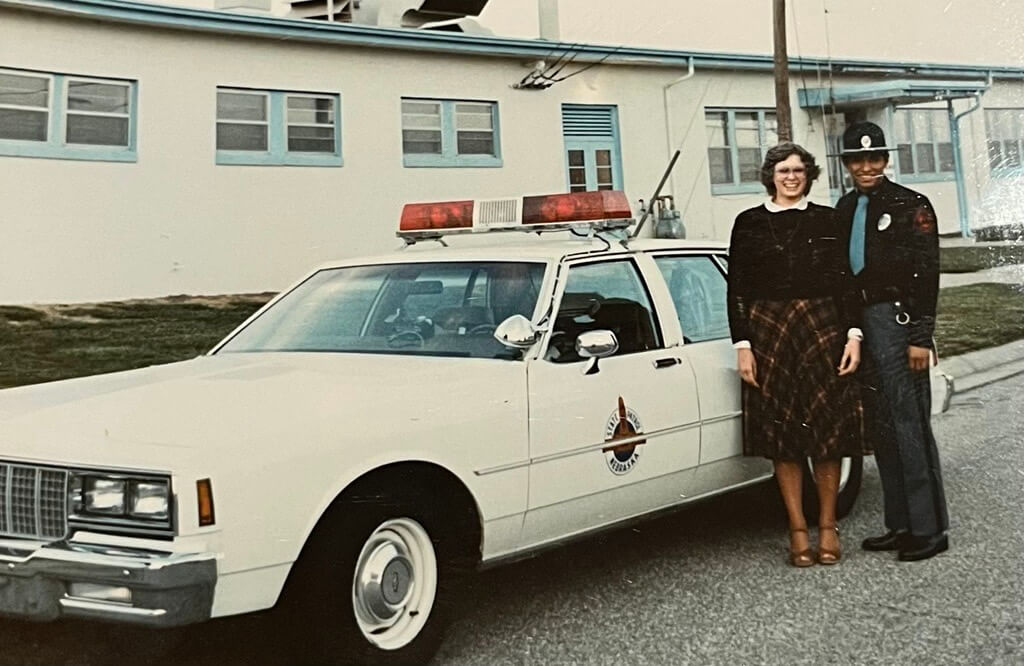
His former mentees, Humberto, Armando, and Jerry, all took different paths—but each remains in Vince’s life. Examples of Vince’s post-graduation assistance include helping one mentee learn to drive when he got his first car in college (and advising him what to do when his younger brother borrowed his car and totaled it).
After graduation, Vince was always just a phone call away if his mentees needed help—no matter how many years had passed.
Sharing important life lessons was an important part of the TeamMates process for Vince. He notes, “Jerry’s been given a lot. I told him, ‘Sometimes there’s a lot asked of you to return back to other family members. That’s one of the challenges I presented to him.’”
But his impact didn’t stop there.
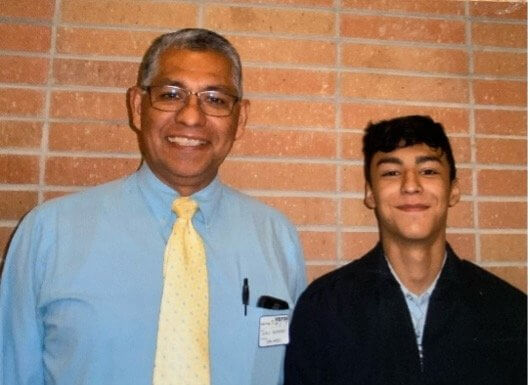
Now: The Ripple Effect in Action
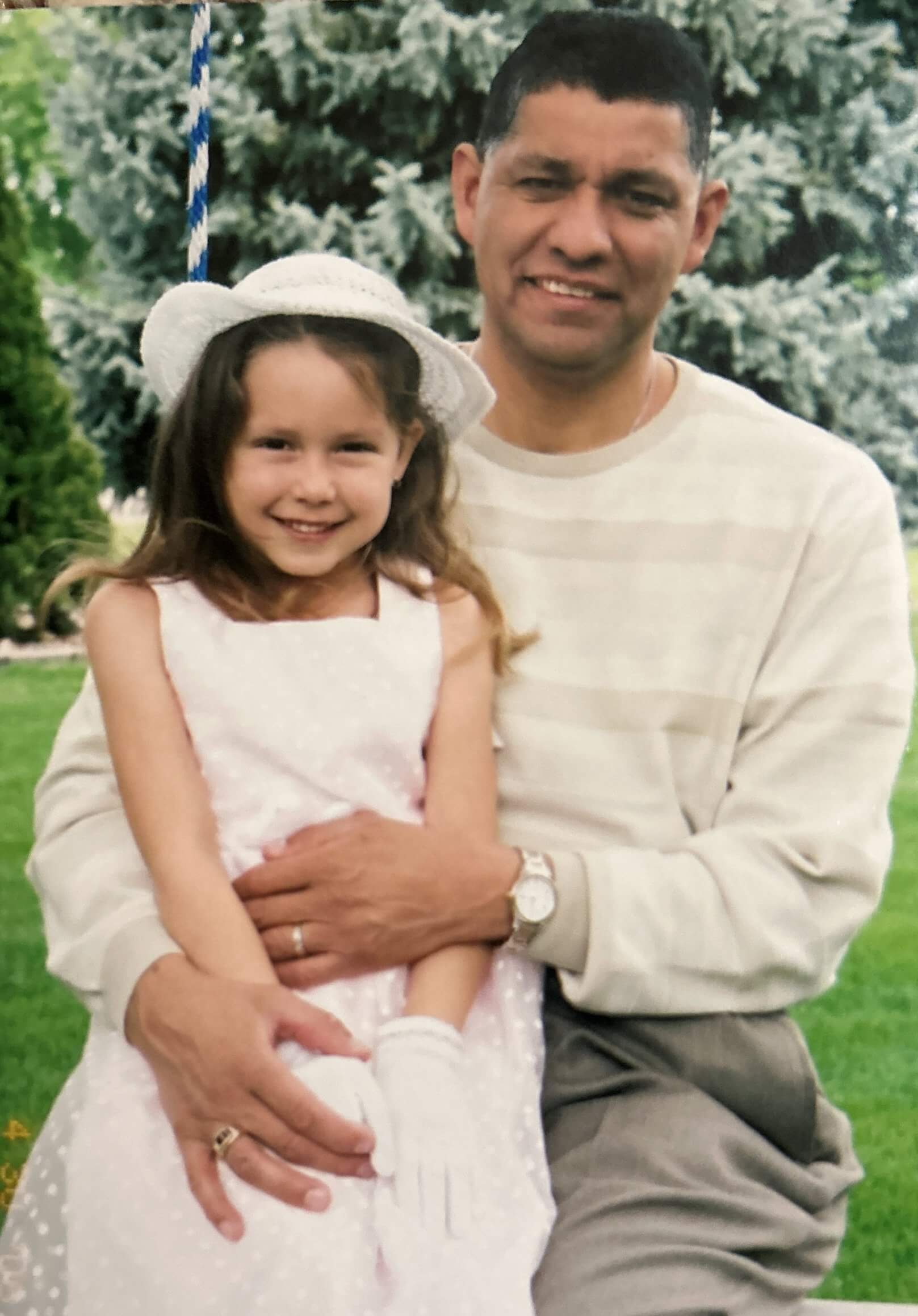
Vince’s daughter Alena grew up knowing her father mentored students. She heard their names, and learned what it meant to show up for someone. “I always thought it was cool that he stayed in touch with all of them. I knew when I was young that I wanted to do TeamMates. My sister was a mentor for a few years, and my mom had always talked about wanting to join. This year, my mom began her first year as a TeamMates mentor. It’s always been a part of our family.”
In 2022, shortly after joining Nelnet, Alena became a mentor herself. Now, she’s guiding Raya through the challenges of middle school, just as her father once did for his mentees.
“We’ve talked about potentially writing a book together,” Alena says of their time spent creating stories and illustrations. “I learn from her. She’s taught me how to be creative. It’s been amazing watching her grow.”
And Raya? She’s now determined to become a teacher—and a mentor.
Jennifer, inspired by her own experience, became a TeamMates mentor in 2015.
“The bond we’ve made is really special,” she says of her current mentee. “The staff says, ‘Riley absolutely loves your visits.’ They comment on the differences they’ve seen. That’s the biggest part of why I do it—the impact.”
Ripples of Impact: How TeamMates Mentoring Makes a Difference
In every ripple, there’s a story. A moment of encouragement, a shared laugh, a spark of confidence—these are the moments that define the TeamMates Mentoring Program. Founded in 1991 by former University of Nebraska head football coach Tom Osborne and his wife Nancy—a teacher—TeamMates is a school-based mentoring program built on the belief that young people benefit greatly from having a supportive, caring adult in their lives. What starts as a simple commitment to show up and listen can make a huge difference in providing hope to a child.
One of the key reasons for the program’s success lies in the thoughtful and intentional way mentors and mentees are matched. TeamMates, in collaboration with school personnel, carefully pairs students with adult mentors on the basis of things like personalities, interests, backgrounds, and needs.
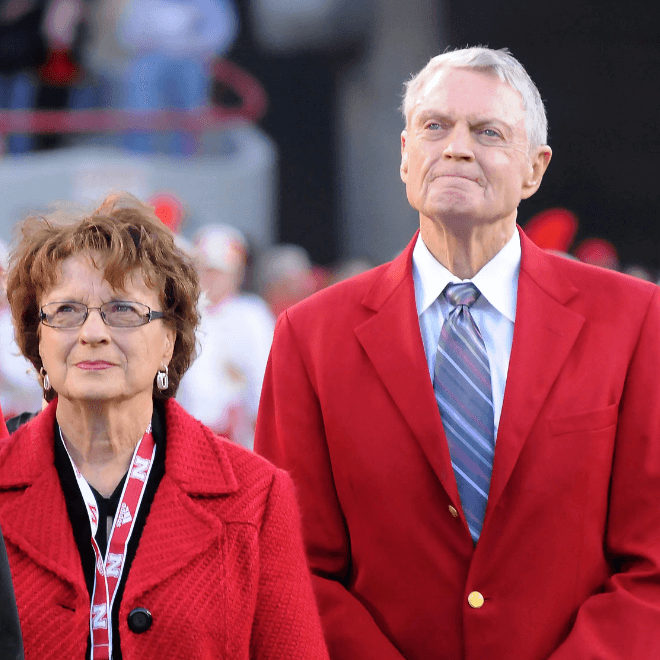
This process ensures that TeamMates finds the right mentor for them—someone who can offer guidance, consistency, and encouragement tailored to their unique journey. By prioritizing compatibility, TeamMates fosters strong, trusting relationships that make a lasting impact.
The effect of these mentorships extends beyond the weekly, one-hour meetings. Students gain confidence and see new possibilities for their future. Mentors, in turn, find fulfillment in being a steady presence for a young person navigating life’s challenges. With each match, another ripple is set in motion, carrying the impact outward—into families, schools, and communities.
At its core, TeamMates is more than a mentoring program; it’s a movement of hope. And through every carefully matched mentorship, that hope continues to grow, one ripple at a time.
Scaling the Impact: The Lincoln TeamMates Story
In Lincoln, where TeamMates began, the local chapter now has over 1,300 mentor-mentee matches each year—about 13% of all TeamMates matches. But with a waiting list of 500 kids annually, the demand is greater than ever.
“It’s not the same 500 kids each year,” says Lincoln TeamMates Program Coordinator Jim Bennett. He adds, “We trained 300 new mentors last year and we’ll train even more this year. We want the right mentors and to train them well. Quality matches are our top priority.”
Students can be nominated for the TeamMates program by a teacher, family member, or school counselor—or they can self-nominate. Notes Jim, “There’s no one-size-fits-all for a mentee: Some are straight-A students, some are struggling. Some of their families are navigating poverty, while others are not. Some have unrealized leadership potential.”
“There are so many different ways we’re supporting students in their journey. Every kid who goes to school has some risk factors that are going to play a role in their lives.”
With background checks and a three-hour TeamMates training completed, each mentor becomes well-known to those in the TeamMates program before they interview with their in-school facilitator. Next, a school staff member and/or facilitator who knows the students nominated in the program, can consider the information about the mentor to carefully match them with the right mentee. Once matched, the pair gets to know each other slowly and check in frequently over the first month. Jim notes, “We’re slow to match and quick to end it if there’s an issue that isn’t going to go away. It happens rarely that we need to do that because we take our time to find quality matches.”
Hired initially as an administrative assistant to Lincoln High School’s associate principals, Lisa Kiely transitioned to a TeamMates facilitator role she assumed in 2009, leaning into her prior teaching experience. She handles logistics like coordinating mentor-mentee meetings and supporting mentors to help make matches more successful, as well as assisting with the matching process.
Lisa notes, “While matching to cultural backgrounds is one factor, I’m going to look at matching you with someone who can help you meet your goals as well, and it may not always be matching with the culture. We consider whether kids want to go to college or their dreams for the future and maybe pairing them with an adult who’s done the same thing.”
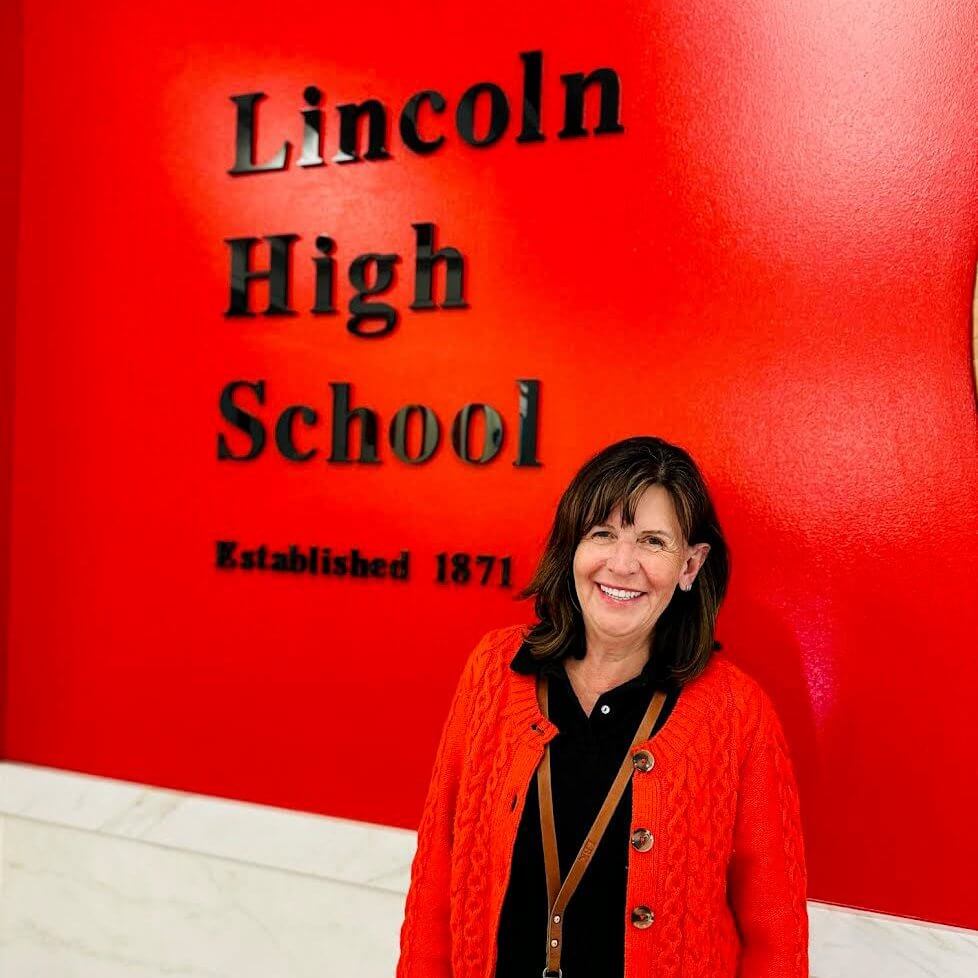
Jim, who has a master’s in counseling and experience in psychiatric hospitals and juvenile justice, knows firsthand the power of mentorship. “Because I want what’s best for kids, mentoring has to be part of that discussion,” he says. “We see better grades, attendance, graduation rates, and behavior while in school. We’re creating relationships—and we see positive, concrete outcomes.”
Jim’s heard countless stories of deep connections between mentors and mentees—like the young man who provided lawn care for his former mentor who was diagnosed with cancer or the many mentees who’ve invited their mentors to be in their weddings. “If you can allow yourself to get out of your own way, it will be one of the most rewarding things you’ll ever do,” Jim adds. “Mentors get just as much out of this as mentees. Actually, many say they get more.”
Jim notes that the Lincoln TeamMates chapter has a goal to serve 2,030 children in the year 2030. He adds, “In order to do that, we know what we need to do for retention and recruitment and we know what numbers we need to hit along the way. We’re on track as of now.” To reach that goal, the chapter is focused on basics—great training, matching, and mentor support, along with a robust recruitment effort.
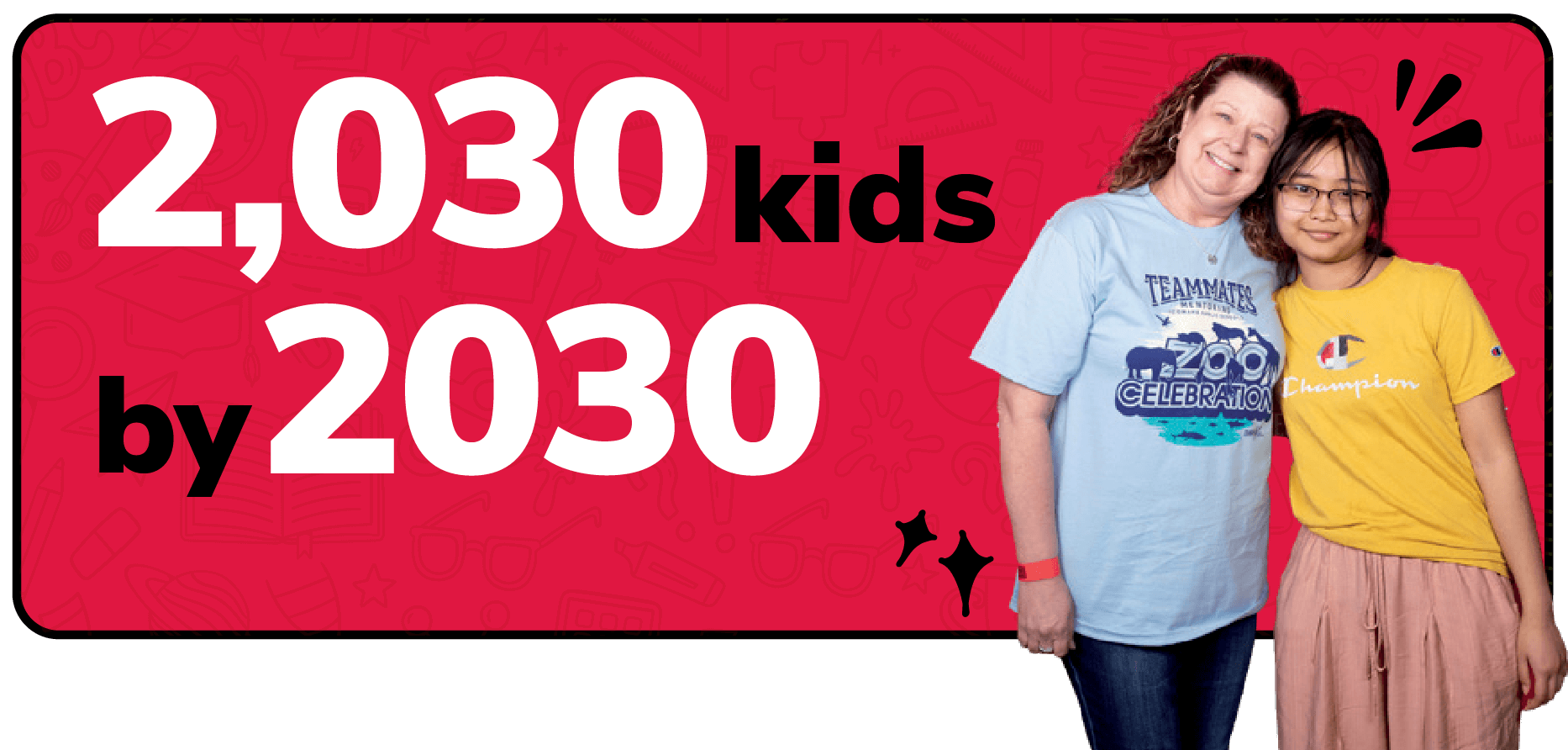
The Power of Partnerships
One of the ways TeamMates is meeting demand is through partnerships with organizations like Nelnet, Hudl, Ameritas, and Fiserv.
“Nelnet’s support as an organization is awesome,” Jim says. “Their communication, financial support, and willingness to make TeamMates a priority by letting associates mentor on the clock is fruitful in so many ways.”
In fact, Nelnet hosts internal recruitment events to encourage more associates to become TeamMates mentors and increase community impact. Many new mentors also join through word-of-mouth connections.
Jennifer Draper, for example, developed a friendship with Kimberly Garhart that started in college and extends to Nelnet, where they both work today. Jennifer encouraged Kimberly to get involved in TeamMates as a great way to give back. “You never know what you’re going to learn from them—or the impact you can make on somebody, even if it’s just sitting and chatting or being there for them. You might be the reason they’re at school that day,” Kimberly emphasizes.
Jennifer and Kimberly’s coworker, Deb Campos, has been a TeamMates mentor since 2011, with just a one- or two-year break after her first TeamMate’s graduation. Says Deb, “In 2011, like today, Nelnet was good at supporting our communities, giving back through our time. I had gone to a presentation in the office and sure enough, there was [TeamMates co-founder] Tom Osborne and [Nelnet co-founder] Mike Dunlap. It was so inspirational I just wanted to participate—plus, I was able to do this amazing work on company time.”
Lisa appreciates the flexibility Nelnet offers associates because it makes her job at the high school easier: “Nelnet has been such a great company to work with—so flexible. Every time I’m told I’ve got a mentor from Nelnet, I know they’ll be flexible and willing to work with the kids’ schedules, and that’s constantly challenging.”
The Ripple Effect: Why It Matters
The numbers say it all:
- 100% of Lincoln TeamMates mentees say they trust their mentor
- 96% talk about graduating high school
- 95% feel hopeful about their future
- 81% have fewer disciplinary referrals
- 49% see improved academic performance
Mentors experience the impact, too:
- 99% leave their mentoring time in a better mood
- 97% return to work or home feeling more engaged
- 81% rate their relationship as excellent or very good
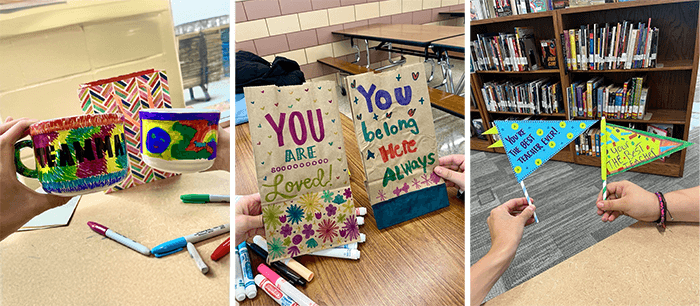
TeamMates makes mentorship accessible and impactful—offering a cost-effective way to support students and help make a difference with this free program. The need for mentors remains strong, yet many children are still waiting for one.
Be the Next Mentor
Jennifer says her TeamMates mentor came into her life, changing it “100% dramatically—personally and scholastically.” Now, she’s showing up for others. The question is: Who will you show up for?
One hour a week is all it takes to make a difference in a child’s life—and yours.

